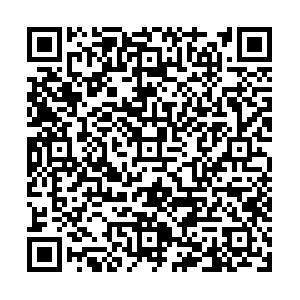Multidisciplinary health literacy management practices in elderly patients with chronic heart failure
-
摘要:
目的 探讨对老年慢性心力衰竭患者运用多学科健康素养管理的策略, 并评估其临床应用效果。 方法 采用便利抽样法, 选取2019年1—12月在桂林医学院附属医院心血管内科住院的老年慢性心力衰竭患者130例作为研究对象, 将2019年1—6月住院的65例患者设为对照组, 2019年7—12月住院的65例患者设为观察组; 对照组实施常规护理指导和电话随访, 观察组在对照组的基础上给予多学科团队指导患者进行自我管理, 干预3个月后比较2组患者健康素养(心力衰竭特异性健康素养量表)及生活质量(明尼苏达生活质量问卷, MLHFQ)情况。 结果 干预前2组患者健康素养和MLHFQ评分比较差异无统计学意义(均P>0.05);干预3个月后, 观察组患者健康素养评分为(36.63±4.16)分, 高于对照组的(27.89±3.64)分, 差异有统计学意义(P<0.05);观察组生活质量量表评分为(36.56±5.07)分, 低于对照组的(49.78±6.32)分, 差异有统计学意义(P<0.05)。 结论 实施多学科健康素养管理能有效提高老年慢性心力衰竭患者健康素养及生活质量。 Abstract:Objective To explore the nursing strategy of multidisciplinary health literacy management for elderly patients with chronic heart failure and evaluate its clinical application effect. Methods From January 2019 to December 2019, A total of 130 elderly patients with chronic heart failure who were hospitalised in a tertiary Grade A hospital in Guilin, Guangxi Zhuang Autonomous Region were selected via the convenience sampling method. Sixty-five patients who were hospitalised each month from January 2019 to June 2019 were set as the control group. Moreover, 65 patients who were hospitalised from July 2019 to December 2019 were set as the observation group. The control group received routine nursing guidance and was followed up via telephone, and the observation group was given multidisciplinary team guidance for self-management on the basis of the control group. The discipline team guided the patients to self-manage. The health literacy and quality of life of the two groups of patients were compared after 3 months of intervention. Results No significant difference was observed in terms of health literacy and the Minnesota living with heart failure questionnaire (MLHFQ) scores between the two groups before intervention (all P>0.05). After 3 months of intervention, the health literacy score of the observation group (36.63±4.16) was significantly higher than that of the control group (27.89±3.64), P < 0.05. The quality of life scale score of the observation group (36.56±5.07) was significantly lower than that of the control group (49.78±6.32), P < 0.05. Conclusion Implementing multidisciplinary health literacy management can effectively improve the health literacy and quality of life of elderly patients with chronic heart failure. -
表 1 2组老年慢性心力衰竭患者一般情况比较(例)
组别 例数 民族 性别 受教育程度 汉族 其他少数民族 男性 女性 文盲、小学 初中 高中及以上 对照组 65 53 12 49 16 3 22 40 观察组 65 55 10 52 13 4 25 36 统计量 0.173a 0.169a 0.495b P值 0.729 0.648 0.661 组别 例数 婚姻状况 年龄(x±s, 岁) NYHA心功能分级 合并原发疾病 已婚 丧偶等c Ⅱ级 Ⅲ级 Ⅳ级 心肌病 瓣膜病 冠心病 对照组 65 56 9 69.93±15.16 12 34 19 23 22 20 观察组 65 55 10 71.03±17.81 13 35 17 22 21 22 统计量 0.887a 0.896d 0.732b 0.714a P值 0.665 0.624 0.657 0.671 注:a为χ2值,b为Z值,d为t值。c包括丧偶、未婚、离婚等情况。 表 2 2组老年慢性心力衰竭患者干预前后健康素养和MLHFQ评分比较(x ±s, 分)
组别 例数 健康素养评分 MLHFQ评分 干预前 干预后 干预前 干预后 观察组 65 27.03±3.83 36.63±4.16 51.37±6.64 36.56±5.07 对照组 65 27.17±3.86 27.89±3.64 51.42±6.73 49.78±6.32 t值 0.879 8.442 0.862 8.851 P值 0.636 0.001 0.609 < 0.001 -
[1] 熊海燕, 胡婷婷, 冷梅芳, 等. 基于"互联网+"的三主体双轨道交互式延续护理在慢性心力衰竭患者中的应用[J]. 中国实用护理杂志, 2018, 34(34): 2641-2647. doi: 10.3760/cma.j.issn.1672-7088.2018.34.001 [2] 霍雪琴, 王建宁, 周松, 等. 冠心病患者健康素养与生命质量的相关性研究[J]. 中国实用护理杂志, 2019, 35(1): 17-20. doi: 10.3760/cma.j.issn.1672-7088.2019.01.004 [3] BERKMAN N D, SHERIDAN S L, DONAHUE K E, et al. Low health literacy and health outcomes: an updated systematic review[J]. Ann Intern Med, 2011, 155(2): 97-107. doi: 10.7326/0003-4819-155-2-201107190-00005 [4] MATSUOKA S, TSUCHIHASHI-MAKAYA M, KAYANE T, et al. Health literacy is independently associated with self-care behavior in patients with heart failure[J]. Patient Educ Couns, 2016, 99(6): 1026-1032. doi: 10.1016/j.pec.2016.01.003 [5] MOSER D K, ROBINSON S, BIDDLE M J, et al. Health literacy predicts morbidity and mortality in rural patients with heart failure[J]. J Card Fail, 2015, 21(8): 612-618. doi: 10.1016/j.cardfail.2015.04.004 [6] 郑战战, 杨贝贝, 宋婷, 等. 慢性心力衰竭患者健康素养现状及其影响因素分析[J]. 中国护理管理, 2019, 19(1): 23-29. doi: 10.3969/j.issn.1672-1756.2019.01.008 [7] 沈忱, 李惠玲, 顾洁, 等. 基于多学科一体化的静脉血栓防治实践与探讨[J]. 中国实用护理杂志, 2018, 34(3): 171-175. [8] 冯升, 成磊, 冯一, 等. 护士主导的多学科团队在重症患儿营养管理中的作用[J]. 护理学杂志, 2018, 33(8): 1-4. https://www.cnki.com.cn/Article/CJFDTOTAL-HLXZ201808002.htm [9] 杨蓉, 蔡宇星, 李蔚, 等. 多学科合作护理模式对慢性阻塞性肺疾病患者急性加重次数及肺功能改善效果观察[J]. 中国实用护理杂志, 2018, 34(13): 975-979. doi: 10.3760/cma.j.issn.1672-7088.2018.13.004 [10] 周海晏, 吴立新, 汪苗, 等. 多学科合作连续康复护理对脑卒中偏瘫患者生存质量的影响[J]. 安徽医药, 2018, 22(8): 1625-1627. doi: 10.3969/j.issn.1009-6469.2018.08.058 [11] 中国心血管病风险评估和管理指南编写联合委员会. 中国心血管病风险评估和管理指南[J]. 中国循环杂志, 2019, 34(1): 4-28. https://www.cnki.com.cn/Article/CJFDTOTAL-ZGXH201901003.htm [12] YUE M, ZHANG L, LU Y, et al. Translation and psychometric evaluation of the Chinese version of the Heart Failure-Specific Health Literacy Scale[J]. Int J Nurs Sci, 2016, 3(4): 342-346. http://qikan.cqvip.com/Qikan/Article/Detail?id=7104143149 [13] 朱燕波, 杜金行, 林琳, 等. 明尼苏达心功能不全生命质量量表中文版的研制及临床试用[J]. 中华行为医学与脑科学杂志, 2010, 19(2): 178-181. doi: 10.3760/cma.j.issn.1674-6554.2010.02.030 [14] 胡盛寿, 高润霖, 刘力生, 等. 《中国心血管病报告2018》概要[J]. 中国循环杂志, 2019, 34(3): 209-220. doi: 10.3969/j.issn.1000-3614.2019.03.001 [15] 温秀芹, 赵洁, 曾庆奇, 等. 提高老年人群健康素养对其基本公共卫生服务利用的影响研究[J]. 中华疾病控制杂志, 2016, 20(2): 204-206. https://www.cnki.com.cn/Article/CJFDTOTAL-JBKZ201602025.htm [16] MOSER D K, ROBINSON S, BIDDLE M J, et al. Health literacy predicts morbidity and mortality in rural patients with heart failure[J]. J Card Fail, 2015, 21(8): 612-618. doi: 10.1016/j.cardfail.2015.04.004 [17] 薛谨, 刘永兵. 老年人轻度认知功能障碍与健康素养关系的研究[J]. 中国实用护理杂志, 2018, 34(20): 1521-1526. https://cdmd.cnki.com.cn/Article/CDMD-11117-1017113801.htm [18] 张庆华, 贾巍, 张静平, 等. 健康素养-行为变化阶段综合干预对牧区哈萨克族高血压患者的影响[J]. 中华行为医学与脑科学杂志, 2019, 28(3): 259-264. https://www.cnki.com.cn/Article/CJFDTOTAL-ZGJK201910004.htm [19] 金璐. Teach back宣教模式在老年代谢综合征患者健康素养教育中的应用[J]. 中国实用护理杂志, 2018, 34(34): 2706-2711. https://cdmd.cnki.com.cn/Article/CDMD-10277-1015626467.htm [20] 李燕飞, 刘永兵, 刘柳. 回授法对养老机构老年人糖尿病相关健康素养的影响研究[J]. 中华护理杂志, 2015, 50(11): 1383-1387. https://www.cnki.com.cn/Article/CJFDTOTAL-ZHHL201511033.htm [21] 顾小红, 金莲, 韩彬, 等. 多学科协作联合移动医疗用于慢性肾脏病患者管理[J]. 护理学杂志, 2019, 34(20): 23-26. https://www.cnki.com.cn/Article/CJFDTOTAL-HLXZ201920010.htm [22] 陈丽萍, 彭幼清, 王峥, 等. 上海市老年慢性心力衰竭病人自我管理现状的调查分析[J]. 护理研究, 2017, 31(4): 407-412. https://www.cnki.com.cn/Article/CJFDTOTAL-SXHZ201704007.htm [23] 郭娟, 毕清泉. 老年慢性心力衰竭患者乐观应对和社会支持及营养评价与生命质量的关系分析[J]. 中华全科医学, 2020, 18(12): 2047-2050. https://www.cnki.com.cn/Article/CJFDTOTAL-SYQY202012020.htm [24] 张烜舜, 孙梦雯, 严光, 等. 冻干重组人脑利钠肽治疗老老年慢性心力衰竭患者的疗效观察[J]. 中华全科医学, 2018, 16(12): 1964-1966, 1999. https://www.cnki.com.cn/Article/CJFDTOTAL-SYQY201812004.htm [25] 董忻悦, 张贤, 陆飞歆, 等. 心力衰竭管理手册对患者自我护理能力及生存质量的影响[J]. 护理学杂志, 2018, 33(8): 66-69. https://www.cnki.com.cn/Article/CJFDTOTAL-HLXZ201808027.htm [26] 宋莹莹, 张岚, 刘秀梅, 等. 多学科协作干预对腰椎术后恐动症患者康复结局的影响[J]. 护理学杂志, 2019, 34(9): 76-79. https://www.cnki.com.cn/Article/CJFDTOTAL-HLXZ201909027.htm -

 点击查看大图
点击查看大图
计量
- 文章访问数: 656
- HTML全文浏览量: 428
- PDF下载量: 12
- 被引次数: 0



 下载:
下载: 